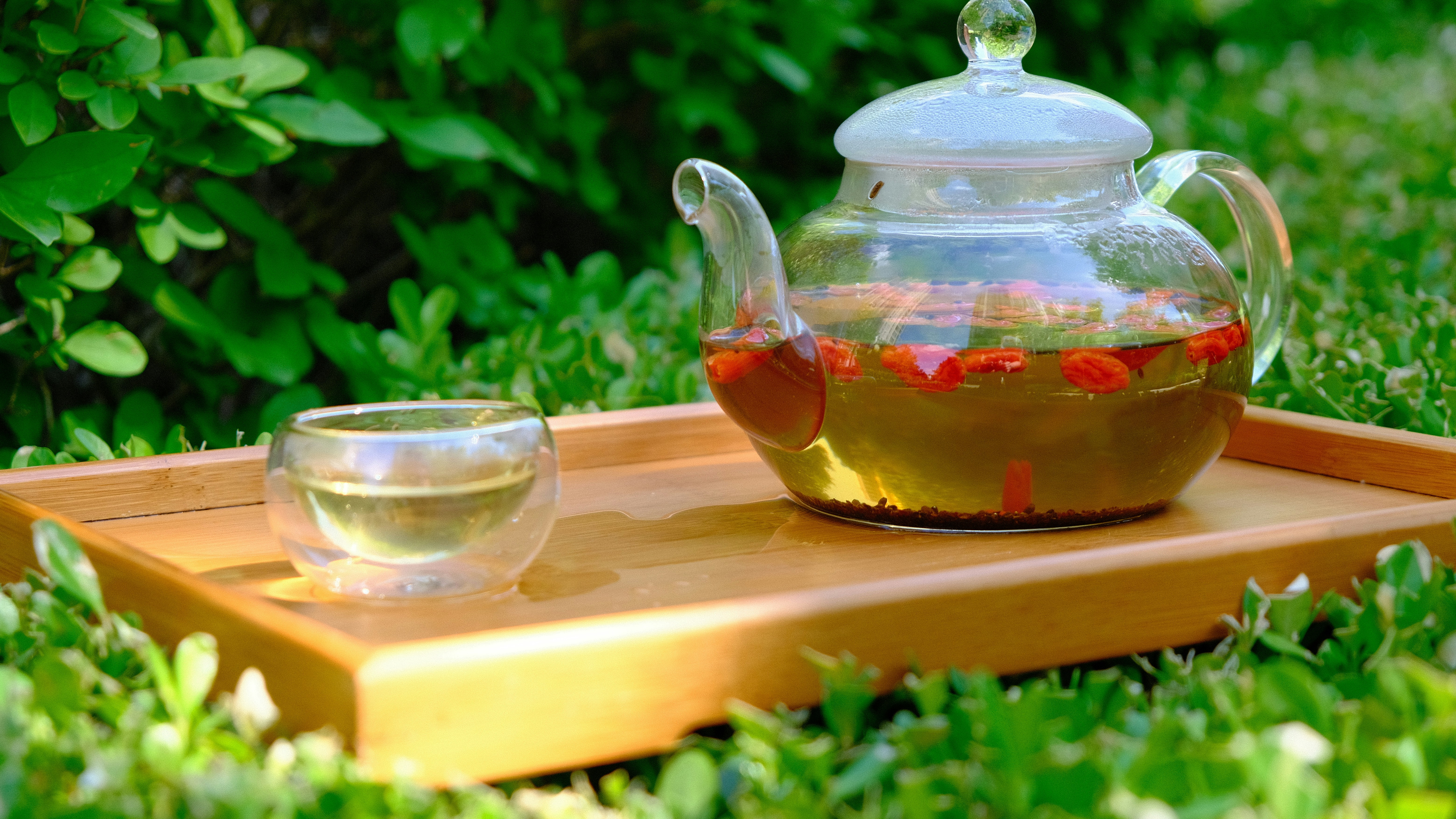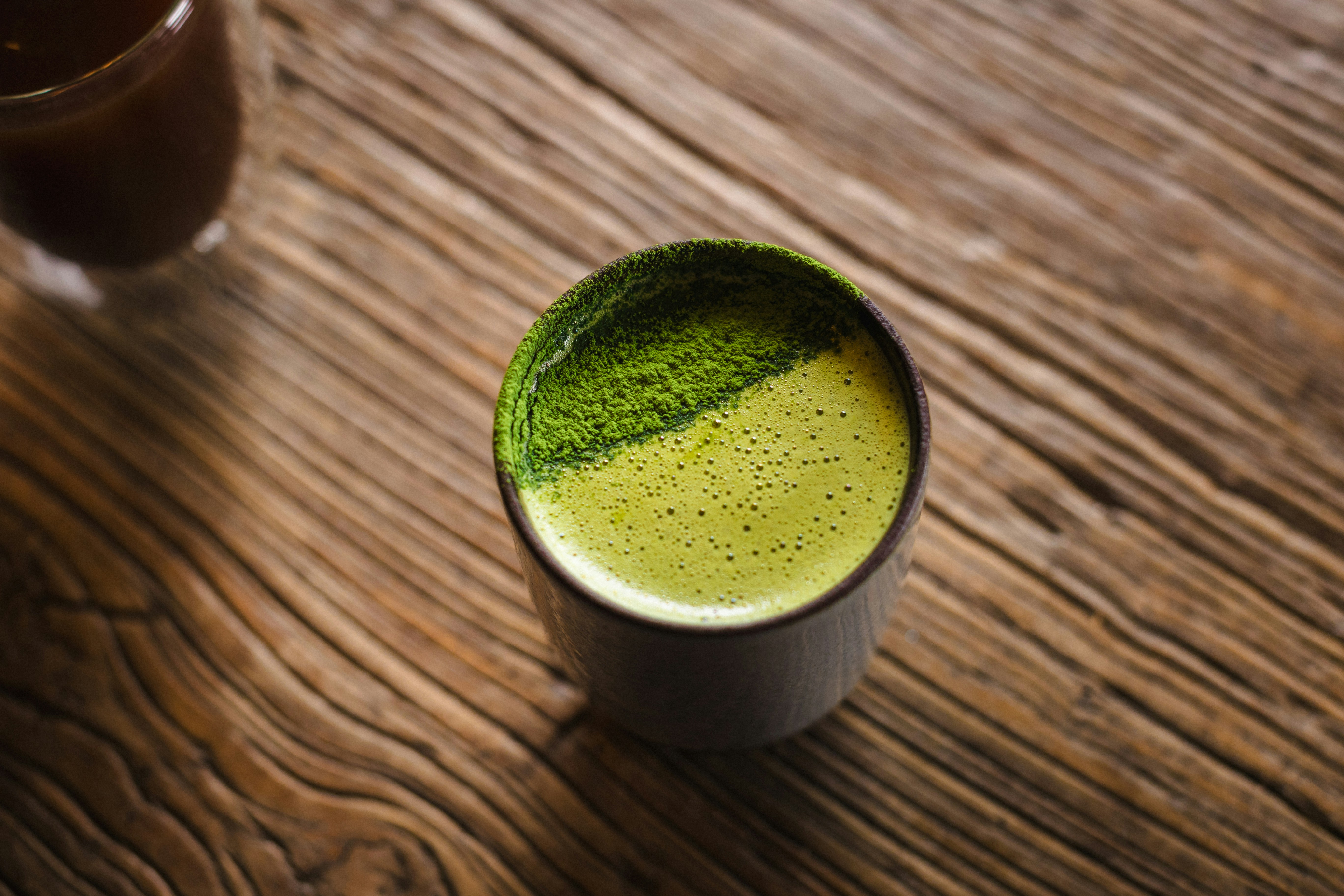Introduction: The Exquisite Art of Tea and Enhanced Energy
Tea, a cherished beverage embraced by diverse cultures for centuries, offers more than just a momentary respite; it provides an invigorating experience that naturally elevates energy levels. The true artistry of tea lies in its remarkable ability to refresh the mind while simultaneously instilling a sense of tranquility and focus, setting it apart from conventional caffeinated beverages that often result in abrupt energy crashes. Whether savored in the peaceful solitude of a morning ritual or shared amidst the conviviality of social gatherings, tea acts as a harmonious bridge between comforting serenity and revitalizing vitality.
Cultural reverence for tea is a global phenomenon, with diverse traditions underscoring its profound significance. In Japan, the meticulous tea ceremony embodies mindfulness and profound respect, while in British culture, the elegant tradition of afternoon tea symbolizes refinement and community. Each culture boasts its own unique brewing methods, distinct flavor profiles, and specific health perceptions, collectively showcasing tea’s remarkable versatility as a medium for energy enhancement. This widespread appreciation for tea invites individuals to explore how their personal relationship with this extraordinary beverage can be seamlessly woven into their daily lives to achieve sustained energy rather than mere temporary stimulation.
Furthermore, tea offers an extensive array of options that cater to a wide spectrum of palates and preferences, ranging from the invigorating zest of green tea, renowned for its high antioxidant content, to the soothing embrace of herbaceous herbal blends, lower in caffeine yet brimming with flavor and wellness benefits. This exceptional versatility alleviates the dreaded energy dips commonly associated with conventional caffeinated beverages. Instead, tea can be regarded as an indispensable ally, one that supports not only productivity and heightened alertness but also overall well-being. As readers reflect on their own unique tea-drinking experiences, they may uncover the profound and often subtle impact that tea has on their daily dynamics.
In the following sections, we will delve deeper into the distinct energizing properties of various tea varieties and explore the scientific underpinnings of these effects, inviting all to embrace tea not merely as a beverage but as an enriching lifestyle choice that enhances the very essence of daily energy.
The Magic of Tea: Exploring Varieties and Their Unique Benefits
Tea, a beloved beverage enjoyed across the globe, comes in a vast array of varieties, each boasting unique flavor profiles and specific health benefits. Among the most popular types of tea are green, black, oolong, and herbal infusions, each contributing uniquely to energy enhancement and overall wellness.
Green tea is widely celebrated for its high concentration of antioxidants, particularly catechins, which play a crucial role in boosting metabolism and promoting fat oxidation. The presence of L-theanine, an amino acid found in green tea, contributes to a state of calm alertness, facilitating sustained energy without the jitters commonly associated with caffeine. Matcha, a finely ground powdered form of green tea, amplifies these benefits, offering a concentrated source of nutrients and prolonged energy release throughout the day.
Black tea, in contrast, is traditionally rich in caffeine and theaflavins, compounds that support cardiovascular health and improve mental acuity. The bold and robust flavors of black tea can complement a demanding and fast-paced lifestyle, providing a reliable pick-me-up during those inevitable mid-afternoon slumps. Popular black tea varieties like Earl Grey and English Breakfast not only invigorate the senses but can also be enjoyed with a splash of milk or cream for a soothing and comforting experience.
Oolong tea occupies a unique middle ground between green and black tea, offering a harmonious fusion of the characteristics of both. With its distinctive fermentation process, oolong tea can aid digestion and facilitate fat metabolism. For individuals seeking a caffeine-free alternative, herbal teas, such as rooibos and peppermint, provide a delightful and refreshing option. While these infusions may not contain traditional caffeine, certain herbal blends can still uplift mood and enhance focus, contributing to a sense of overall well-being.
Personal anecdotes often reveal the transformative effects of discovering the perfect tea variety. Countless individuals have found their ideal beverage through experimentation, noting how specific teas like yerba mate and hibiscus can foster both increased energy and enhanced wellness. These personal experiences underscore the concept that tea is not merely a drink but a pathway to organically enhancing one’s lifestyle.
Brew Time: Mastering the Art of Preparing Tea for Optimal Energy
Brewing tea is a nuanced art form that not only influences the flavor of the final beverage but also significantly impacts its energizing properties. To fully maximize the benefits of tea and create a truly reviving drink without the dreaded energy crash, meticulous attention to detail during the brewing process is absolutely essential. Begin by selecting high-quality tea leaves, regardless of whether you prefer black, green, or herbal varieties, as the quality of the leaves directly influences the tea’s overall energizing effects and flavor profile.
Water temperature plays a critical role in extracting the full spectrum of flavors and beneficial compounds from tea leaves. For black tea, water heated to approximately 200°F (93°C) is optimal, while green tea requires slightly cooler water, around 175°F (80°C). Using water that is excessively hot can result in a bitter and unpleasant taste, detracting from both the overall sensory experience and the beneficial effects of the tea. Steeping times are equally crucial; generally, black tea should steep for 3 to 5 minutes, while green tea typically requires a shorter steeping time of 2 to 3 minutes. Carefully experimenting with these parameters can help you discover the ideal balance that perfectly suits your individual palate and specific energizing needs.
Enhancing the flavor of your tea while simultaneously maximizing its health benefits is another important factor to consider. Adding natural sweeteners like honey or a splash of tangy lemon juice can elevate the taste profile without compromising the inherent health properties of the tea. Additionally, incorporating spices such as ginger or turmeric not only enriches the flavor but also introduces added health benefits, including potent anti-inflammatory effects. The very ritual of preparing tea can also serve as a mindful practice, fostering a deeper connection with the beverage and allowing you to pause and fully appreciate the present moment.
Seamlessly incorporating these brewing techniques into your daily routine can transform a simple act of drinking tea into a profound energy-boosting experience, allowing you to savor each sip while remaining revitalized and focused throughout the day.
Mindful Moments: Integrating Tea into Your Daily Routine for Enhanced Energy
Integrating tea into your daily routines presents a unique opportunity not only to enjoy a flavorful beverage but also to engage in mindful practices that can significantly boost energy levels and improve focus. Establishing a designated tea break during work or study hours can serve as a refreshing pause that enhances overall productivity and promotes a sense of well-being. For instance, stepping away from the glare of a computer screen for a few moments to savor a cup of revitalizing green tea allows individuals to recharge their mental and physical batteries. This brief interlude provides both physical and mental rejuvenation without the subsequent energy crash often associated with high-caffeine drinks or sugar-laden snacks.
Furthermore, the very ritual of preparing and mindfully drinking tea can become a form of meditation and mindfulness practice. By consciously paying attention to the subtle aromas, vibrant colors, and delicate textures of the tea leaves, individuals can center themselves in the present moment, fostering an environment conducive to improved concentration and focus. This purposeful engagement with tea not only heightens awareness but also effectively reduces stress levels, contributing to an overall energizing effect. Many tea drinkers report feeling more grounded and better equipped to tackle tasks with renewed vigor following these mindful tea moments.
Anecdotes abound of individuals who have dramatically transformed their workflows through the incorporation of tea rituals. One compelling account involves a freelance graphic designer who consistently struggled with debilitating afternoon slumps. By incorporating a mid-afternoon tea break into her daily routine, she reported feeling significantly more alert and creative, ultimately enhancing the quality of her work. Another anecdote tells the story of a busy entrepreneur who discovered that a quiet tea break provided him with the opportunity to clear his mind and strategize effectively, thereby increasing his overall efficiency and productivity. These narratives powerfully illustrate that the simple act of enjoying tea can profoundly impact energy management and focus throughout the day.
Tea and Nutrition: Fueling Your Body with Nature’s Goodness and Sustained Energy
Tea is far more than just a refreshing beverage; it represents a vital component of a health-conscious diet, offering numerous nutritional benefits that contribute to sustained energy levels throughout the day. Abundant in antioxidants, tea combats oxidative stress within the body, a crucial factor in maintaining overall well-being and vitality. Various types of tea, including green, black, and herbal varieties, contain unique compounds that support essential metabolic processes and aid in efficient energy production.
One of the most notable components of tea is catechins, particularly prevalent in green tea. These potent antioxidants have been scientifically linked to improved cardiovascular health, enhancing blood flow and oxygen delivery to muscles, thereby promoting energy efficiency and overall physical performance. Moreover, teas are rich in essential vitamins such as vitamin C and B vitamins, which play critical roles in energy metabolism. By incorporating tea into your daily diet, you can ensure a steady supply of these essential nutrients, enhancing vitality and combating fatigue.
Personal accounts vividly illustrate the positive impact of tea on daily energy levels. For instance, many individuals report that incorporating a morning ritual of enjoying a warm cup of oolong tea has significantly transformed their busy days, effectively replacing their previous reliance on coffee. The gradual release of caffeine from tea provides a sustained energy boost without the jitters or crashes often associated with coffee. Others have found that herbal teas, such as peppermint or ginger, not only invigorate the senses but also aid digestion, further enhancing physical well-being and overall energy levels.
Incorporating tea into a balanced diet also encourages healthier snacking choices, as tea is often paired with nutritious foods like fresh fruits and wholesome whole grains. This synergy between tea and nutritious snacks creates a powerful combination that helps to keep energy levels stable and balanced throughout the day. Therefore, tea is an excellent dietary addition, helping to fuel your body with nature’s goodness while simultaneously promoting overall vitality and energy efficiency.
Love and Connection: Tea as a Social Experience and Source of Energy
Tea has long been celebrated not only for its invigorating properties but also for its unique ability to bring people together in meaningful ways. The act of brewing and sharing tea establishes a communal ritual that fosters connection, warmth, and a sense of belonging. In many cultures around the world, offering tea is synonymous with expressing hospitality and extending friendship. This simple yet powerful gesture often serves as the foundation for meaningful conversations, shared laughter, and memorable experiences.
Gathering with friends or family over a shared pot of tea can significantly enhance feelings of well-being and create a positive and energizing atmosphere. The ambiance created by the simple act of steeping tea, accompanied by the rich aromas and delightful flavors, promotes relaxation and encourages open communication. Such settings often invite animated discussions where stories, thoughts, and emotions are exchanged freely and openly. This sharing process can alleviate stress and combat fatigue, effectively rejuvenating the spirit and enhancing emotional connections, which in turn contributes to a sense of renewed energy and vitality.
Imagine the engaging scene of friends gathered in a cozy café, teacups in hand, engrossed in thoughtful conversation. Or envision a family gathered around a kitchen table, sharing stories and laughter while enjoying a warm cup of soothing herbal tea. Each of these heartwarming moments vividly illustrates how tea can become a powerful conduit for love and connection, reinforcing social bonds and strengthening relationships. Natural connections and emotional support flourish in these settings, creating an energizing atmosphere that uplifts both the heart and the mind.
Moreover, the social experience of tea drinking transcends geographical boundaries and cultural differences. From the formal afternoon tea ceremonies in England to the deeply spiritual Japanese tea ceremony, and even the informal gatherings in diverse communities around the world, these practices powerfully demonstrate how tea serves as a universal symbol of human connection and interaction. It invites individuals to slow down, engage meaningfully with one another, and enjoy a welcome respite from the relentless hustle and bustle of everyday life. In essence, tea drinking is not merely about consuming a beverage; it is about fostering relationships, fortifying a sense of belonging, and strengthening the bonds of community, all of which contribute to a sense of overall well-being and sustained energy.
Spiritual Lift: Tea in Rituals and Mindfulness Practices for Enhanced Energy
Tea has long held a revered position in numerous cultures worldwide, serving not simply as a refreshing beverage, but as a powerful conduit for spiritual upliftment and enhanced mindfulness. From the serene and deeply symbolic tea ceremonies of Japan to the meditative tea rituals practiced in China, the act of mindfully brewing and consuming tea can transform into a profoundly spiritual and restorative exercise. The rituals involved in these traditions encourage participants to cultivate a deep focus on the present moment, fostering a sense of grounding, clarity, and inner peace. The ceremony itself often promotes an acute awareness of the subtle yet significant sensations involved in the preparation of tea—the gentle steam rising from the kettle, the vibrant and captivating colors of the tea leaves, and the exquisite and intoxicating aroma—aspects that are frequently overlooked or taken for granted in the rush of daily routines.
A notable example of tea’s spiritual significance is the Japanese tea ceremony, known as “chanoyu.” This intricate and deeply symbolic ritual places significant emphasis on aesthetics, profound respect, and the pursuit of harmony. Participants are encouraged to reflect deeply on their surroundings and the carefully orchestrated act of pouring, serving, and gracefully sipping tea. Each movement is deliberate and intentional, cultivating a form of mindfulness that significantly heightens and enriches the overall experience. The serene and tranquil environment of the traditional tea room, combined with the ritualistic nature of the ceremony, empowers individuals to find a moment of profound peace and stillness within themselves. This spiritual connection to tea encourages participants to fully awaken their senses, creating a refreshing and revitalizing balance that enhances one’s energy levels without the subsequent crash often associated with other stimulants.
Beyond the rich traditions of Japan, various cultures utilize tea as a valuable means of connecting to higher states of consciousness and achieving spiritual enlightenment. In many indigenous communities around the world, tea serves as a symbolic bridge between the physical and spiritual realms, often employed in sacred rituals aimed at healing or seeking guidance from the spirit world. By mindfully integrating tea into their daily mindfulness practices, individuals can tap into a rich tapestry of spiritual significance, opening a dialogue with their inner selves and fostering a deeper connection to the world around them. As tea fosters moments of quiet reflection and profound stillness, it allows one to cultivate an energizing clarity that enhances overall well-being and promotes a sense of sustained energy and vitality.
Cautions and Considerations: Finding Your Personal Balance with Tea Consumption
While tea can be an excellent source of sustained energy and essential nutrients, it is important to acknowledge that individual responses to tea, particularly its caffeine content, can vary significantly. Caffeine, one of the primary components of many tea varieties, can affect people differently based on their individual sensitivity levels and overall tolerance. Individuals who are particularly sensitive to caffeine may experience heightened anxiety, restlessness, or insomnia even with relatively small amounts of tea. Consequently, it is crucial to carefully assess personal tolerance to caffeine and modify tea consumption accordingly.
Moreover, some individuals may have specific health conditions or dietary restrictions that necessitate caution when incorporating tea into their daily routine. For example, people with certain cardiovascular issues or those who are pregnant should consult with healthcare professionals before heavily consuming caffeinated beverages, including tea. Additionally, various herbal teas can interact with certain medications, so it is always advisable to carefully read labels and consult with a qualified medical practitioner if there is any uncertainty about potential interactions.
Listening to your body’s signals is essential in determining the appropriate amount of tea that enhances your energy levels without causing unwanted side effects. It is generally recommended to start with smaller servings of tea and gradually increase the amounts while paying close attention to how it impacts your mood, alertness, and overall well-being. This mindful approach not only fosters a greater understanding of one’s unique responses to tea but also promotes self-care and responsible consumption. Finding the right balance can lead to a more enjoyable and beneficial tea-drinking experience, maximizing the positive effects while minimizing any potential drawbacks.
Moderation is key when it comes to enjoying the benefits of tea; excessive tea consumption can lead to undesirable side effects such as headaches, digestive issues, or an increased heart rate. Therefore, prioritizing personal comfort and overall health is paramount when incorporating tea into your daily routine. By recognizing your individual limits and making informed choices regarding tea consumption, you can effectively harness the energizing benefits of tea while minimizing any potential drawbacks. Overall, embracing a thoughtful and moderated approach allows for a rewarding and enriching journey into the fascinating world of tea.
Conclusion: Embarking on Your Personal Journey to Sustainable Energy with Tea
As we explore the myriad ways in which tea enhances energy levels without the subsequent crash often associated with other caffeinated beverages, it becomes increasingly evident that this ancient and revered beverage offers far more than just a fleeting and temporary boost. From the calming and restorative properties of herbal varieties to the invigorating effects of green and black teas, the remarkably diverse range of options available ensures that there is a perfect tea variety to suit every individual’s unique needs and preferences. Each type of tea not only contributes to increased physical energy but also promotes mental clarity, emotional well-being, and a heightened sense of overall vitality, making it an ideal companion for our daily activities and a valuable addition to a healthy and balanced lifestyle.
Throughout this comprehensive blog post, we have carefully examined how tea provides sustainable energy by delivering essential antioxidants, vitamins, and minerals to the body. These beneficial components work synergistically to offer a gentle yet effective lift in vitality without the jitters or energy crashes commonly associated with other stimulants. Integrating tea into your daily routine can establish a structured and beneficial practice that enhances energy management throughout the day rather than simply masking fatigue with short-lived bursts of energy. Consider establishing a revitalizing morning ritual with a cup of energizing green tea or a calming afternoon break with a soothing chamomile blend. These mindful moments can offer not just a welcome respite from the daily grind but also a valuable means to maintain focus, clarity, and sustained energy throughout the day.
We wholeheartedly encourage you to embark on your own personal tea journey by experimenting with different flavors, varieties, and brewing styles. Explore the rich history and profound cultural significance of tea rituals around the world and consider how these ancient traditions can enrich your own tea-drinking experience. Sharing this journey of discovery with friends or family adds another layer of enjoyment and connection, fostering deeper relationships and creating lasting memories over a shared pot of tea. As you reflect on how tea has become an integral part of your life, we invite you to share your unique tea experiences and valuable insights with others. Together, let us celebrate the invaluable role of tea in achieving sustainable energy, promoting overall well-being, and enriching our everyday lives in countless ways.








Leave a Reply